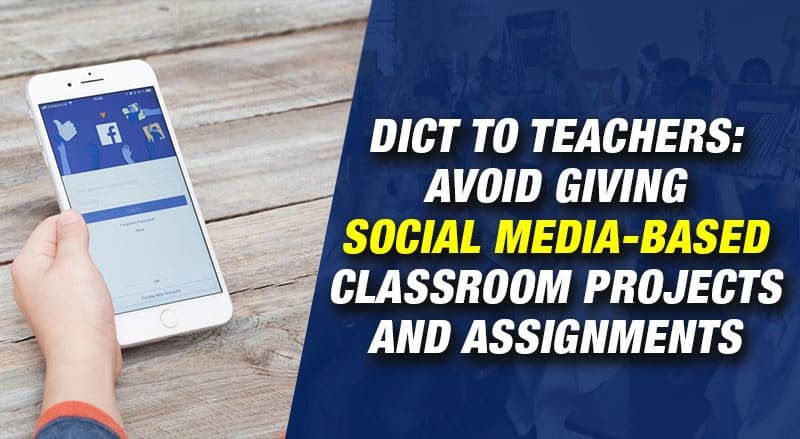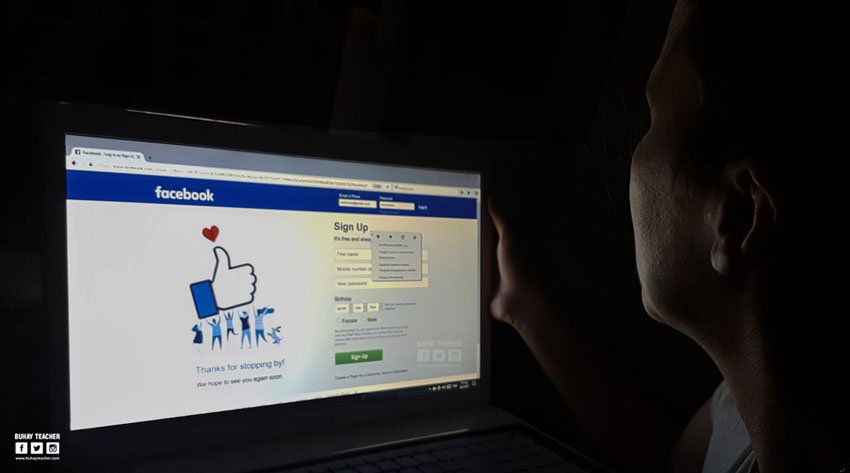The Department of Information and Communications Technology (DICT) urges teachers to refrain from giving social media-based school projects. These type of school projects uses the number of likes received on social media channels like Facebook as a way to grade the students.

In a text message by DICT Secretary Eliseo Rio to INQUIRER.net, he said that, ““This was the common complaints of parents during the Digital Parenting seminars conducted by the DICT Cybersecurity Bureau. Some projects assigned to students required them to post in social media and are graded on the number of likes they get.”
RELATED STORY: 5 Harmful Effects of Gadgets to Children that Parents Often Neglect
DICT’s fear of the use of social media in giving assignments and projects to students is that the students might be exposed to cybersecurity issues such as cyberbullying and bashing. Moreover, strangers with bad motives may also take advantage of getting the private details of minor students through social media.
Teachers’ use of social media as a way to disseminate information on school-related matters has already been discouraged by DICT in earlier reports.
As a way to protect students from being harmed on social media, DICT is working on a memorandum circular that will encourage schools to refrain from using social media for class projects and assignments.
Instead of using social media in handing out information, teachers are being advised to use email instead as a channel of sending classroom projects and assignments to their students.

How can we protect our children from cybersecurity issues?
As teachers, it is our role to impart knowledge to our students through different channels and with the rapid evolution of technology, today’s world offers social media as a way of communication between teachers and their students. However, it’s availability doesn’t necessarily mean that it’s too safe for our children to be exposed to it.
To do our part, teachers must first be aware of the harmful effects of social media to children as well as its benefits. We must also enlighten our students on how to make use of the internet responsibly and in ways that it would benefit them.
Furthermore, parents’ role in guiding their children’s online activities at home would be crucial that’s why they must also ensure that proper guidance is being given to their children in order to protect them from any cybersecurity issue.
Source: INQUIRER.net



